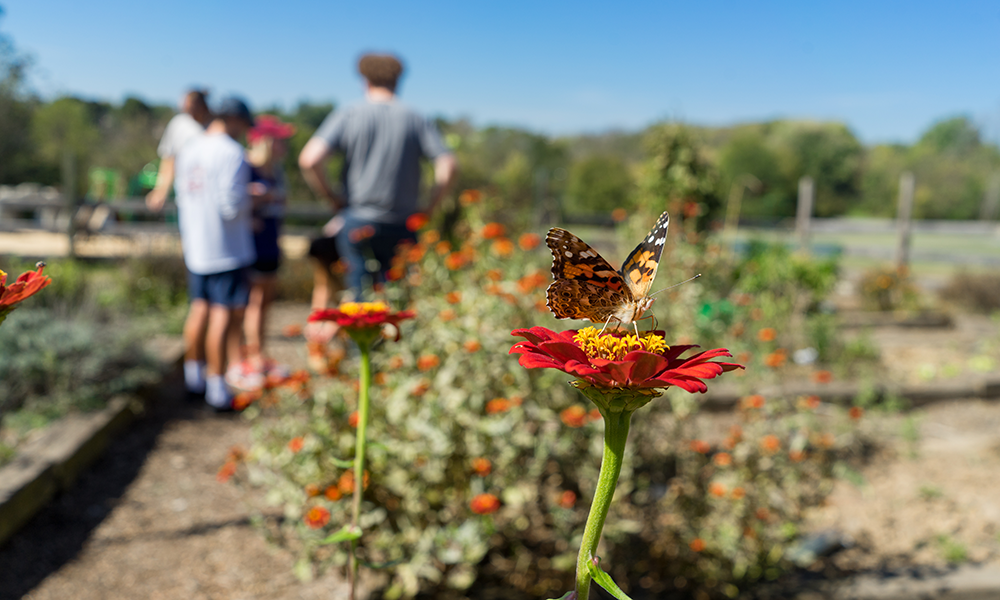Bees, butterflies and things that sprout can teach valuable lessons at home
JMU News
If you have a garden, you also have your own laboratory.
Whether you’re growing flowers, vegetables or both, gardening provides a really good way to learn a variety of science concepts, said Amy Goodall, a James Madison University professor of geography who has been building gardens at area elementary and middle schools the past several years.
Goodall’s work with schools will be featured tonight in a 10-minute segment of the PBS show, “Virginia Home Grown.”
Among the lessons gardens teach, Goodall said, are plant life cycles and the benefits of pollinators like bees and butterflies.
“Something kids can do once they have a garden,” Goodall said, “they can measure the plant growth every week, they can watch what happens when it rains or if there’s a drought, they can do soil tests and see how deep the moisture goes into the soil.”
Gardens also are good for learning about habitat and how to help create habitat for species. “They can do something really nice for the ecosystem, but also learn a lot of science,” Goodall said.
Goodall said there are lots of books about things that can be learned from gardening as well as a lot of material online, much of it free.
Even though July begins tomorrow, it’s not too late to start a garden.
Vegetables such as green beans, cucumbers and corn still have time to grow, especially since the first killing frost rarely happens before early-October. As for flowers, Goodall recommends cosmos, marigolds, sunflowers and zinnias.
For some extra fun, grow popcorn. It’s smaller than sweet corn, so it doesn’t require as much space. “Even if you get just five or six ears, maybe eight plants, it’s really fun to pop," Goodall said.
Gardens can be just about any size, from a flower pot or two to something a little larger that can be built in the yard.
About Amy Goodall
Amy Goodall is an associate professor of geography whose teaching emphasizes the importance of Earth’s biodiversity. Students who work with Goodall go on to graduate programs in biogeography and agriculture as well as to employment in environmental education, natural resources conservation, and sustainability of urban environments. Her scholarly interests and research are applied biogeography, human perceptions of biodiversity conservation, citizen science, and gardens for environmental education and community engagement.
Media contact: Eric Gorton, gortonej@jmu.edu, 540-908-1760
# # #
